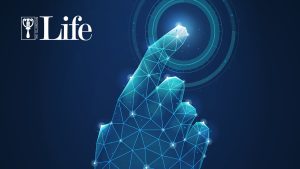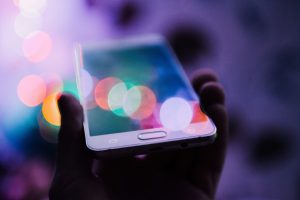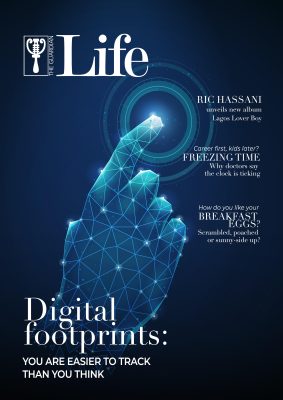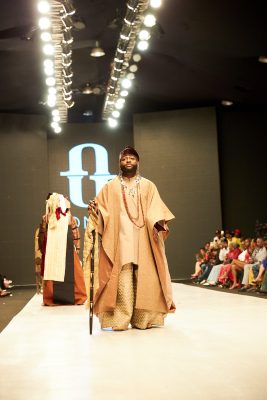Pause for a moment to consider this: would you be comfortable if an employer, visa officer, or potential partner formed their opinion of you solely based on your social media interactions?
More than ever, your online persona determines your real-world credibility. Your timeline, threads, memes, captions, and comments are searchable and traceable. Not just by followers, but by embassies, recruiters, landlords, and law enforcement.
The US recently mandated that applicants for F, M, and J non-immigrant visas set their social media accounts to public “to facilitate vetting necessary to establish identity and admissibility.” But this move reflects a wider truth: total online anonymity is a comforting illusion, often shattered when least expected.

Who are you online?
On June 16, an X account called Red Pill Media claimed to be run by an American-born analyst denouncing Israel. Hours later, OSINT (open-source intelligence) investigators exposed the account’s true location: Karachi, Pakistan. The email and device used to publish posts were parts of the evidence presented. The exposure wasn’t dramatic, with no hacks or data breaches. Just digital fingerprints: metadata, device history, posting habits, language patterns.
And just like that, the mask fell.
You don’t need to be famous to be found. Anonymous or semi-anonymous accounts have been traced to fraud rings, hate speech networks, and even political operatives.
In Nigeria, it is commonplace to see users create social media accounts to hide behind anonymity to defame, spread disinformation, stalk and defraud people of their money. In January 2024, the Nigerian police claimed to have arrested eight men behind the infamous Gistlover social media pages through digital forensic analysis. The pages had wielded perceived anonymity to make several claims.
Cybersecurity experts, however, say that total anonymity online is more of a myth than a reality.
“Even with VPNs, people underestimate how interconnected their digital lives are,” Cybersecurity expert David Atteh* tells Guardian Life. “If I have enough data points, like old usernames, shared devices, or IP logs, I can map your online identity back to your real one in days. Sometimes hours.”
Online vs offline
Anonymity is not necessarily bad, especially in a repressive and judgmental environment. It empowers people to speak out, discuss important topics, and avoid being judged. It offers a critical lifeline to a wide spectrum of people.
But people regularly hide under the perceived veil of the facelessness that social media offers to commit crimes that often have fatal consequences. In some instances, anonymity has been used as a vehicle to cause widespread mischief, target vulnerable groups and individuals, and mobilise hatred.
Countries like the United States now conflate social media and real-life personas to make important decisions about who is granted visas. Now, your tweets, posts, and shares have entered the conversation.
But it doesn’t stop at visas. Your social media interactions increasingly determine your credibility and even your chances to get jobs. Your outstanding CV might land you the interview, but your digital presence could make or break the deal.
Employers are becoming more finicky about the social media persona of the people they intend to hire. While your social media posts may not be a reflection of your employment or where you work, reputable organisations may not want to be affiliated with certain personalities.
Cybersecurity expert Timothy Avele explains that social media vetting for prospective employees helps companies filter through the candidates that may be injurious to the public profiles of brands.
“It’s important to know the social life of whom the company wants to hire. This is to avoid negative social impact on their business,” he says.
HR expert Olatunji Abolore Quddus insists that social media checks can help identify potential red flags, such as discriminatory remarks, offensive content, or unprofessional conduct, which might not surface during structured interviews.
“They can also play a role in reducing reputational risk, especially in client-facing or public relations roles, where a candidate’s online behaviour could reflect directly on the brand,” he tells Guardian Life.
He, however, strikes a cautionary tone. Social media presents a curated image of the persons behind the accounts, and as such, checks should be approached with discretion and fairness, not as a judgment tool. They should be “a supportive measure to help clarify or reinforce other aspects of a candidate’s profile.”

What gives you away
Social media platforms like Facebook, X (Twitter), Instagram, TikTok, and Reddit log IP addresses, device information, browsing behaviours, and more. These digital breadcrumbs make you traceable to platforms and law enforcement alike.
Facebook knows when you stay too long on a post. TikTok maps your pause time. Reddit tags your browsing habits. It’s how algorithms work. But it’s also how law enforcement and third-party data buyers connect the dots.
Every photo, video, and post might contain hidden details called metadata, including locations and timestamps. Even if you carefully erase these digital traces, your writing style, habits, interests, and patterns can still betray your identity to trained analysts using OSINK (open-source intelligence).
“Platforms are essentially giant surveillance machines,” Atteh says. “They’ll comply with government subpoenas, especially in national security or criminal cases. And in many countries, no subpoena is even required.”
Photos, videos, audio notes, and every piece of media has invisible data baked in. GPS location. Time stamps. Camera details. Even if you scrub the files, there are patterns in your content: the way you type, the slang you use, and the time you post.
“Even when you delete posts from the Internet or social media apps, this can still be recovered with special software,” Avele further warns.
This is how OSINT experts catch fake accounts, trace misinformation networks, and even solve crimes.
“We’ve had clients—politicians, celebrities, fraud victims—who were tracked down because they forgot to crop one corner of a screenshot,” says Blessing Omorogbe, a digital security consultant for public figures. “That’s how fragile your ‘privacy’ is online.”
In Indonesia, the ITE Law makes it easy for authorities to trace and prosecute anonymous accounts accused of defamation or hate speech. According to Kominfo, over 11,000 reports of harmful content were filed in 2022 alone, and many of them involved supposedly “anonymous” users.
Some went to jail. Others lost their jobs, families, and reputations.
Nigeria isn’t far behind. The Cybercrime Act already gives law enforcement access to user data in certain cases, and private platforms rarely resist. If you’re using anonymity as a cover for harm, you’re easier to find than you think.
Human error is the biggest risk
People reuse usernames. Post subtle location clues. Like specific pages that give away interests or regions. Or mention personal stories in passing — “my cousin’s wedding last weekend in Ibadan” — that help triangulate identity.
“It usually takes one or two oversights to blow the cover,” says Atteh. “People talk. People screenshot. People search.”
And once you’re found, there’s no undo button.
“One of the biggest mistakes people make is thinking switching usernames or accounts makes them untraceable,” says technology consultant Chiamaka Ichoku.
“Reusing email addresses, posting photos with metadata, or even maintaining similar writing styles can easily expose you,” Ichoku adds. “Most people don’t realise how unique their digital behaviour is until it’s used to identify them.”
When is anonymity actually useful?
Anonymity isn’t inherently bad. On the contrary, it has crucial benefits, particularly for vulnerable individuals.
“There are people who need it for safety,” says Chika Udeh*, an LGBTQ+ rights advocate. “For queer Nigerians, whistleblowers, or survivors of abuse, online anonymity can be a lifeline. It’s a form of self-protection, not deception.”
Research backs this. A 2021 piece in The Conversation argues that banning anonymity won’t end online abuse because many abusers use their real names. Instead, bans could silence the most vulnerable.
Drag performers, activists, survivors, and minorities all rely on pseudonymity to exist safely in digital spaces that are often hostile.
So, no, this isn’t a call to end anonymous accounts. It’s a call to understand the risks. To be aware of the trade-offs. And to use that anonymity with care, not as a weapon.
How to be (almost) anonymous
True anonymity online requires digital discipline. If you’re serious about staying hidden, here’s what cybersecurity professionals recommend. But even these don’t guarantee total protection.
- Use privacy browsers (like Tor).
- Always be behind a strong VPN.
- Never use personal emails or phone numbers.
- Post only from secure networks.
- Avoid repeating language patterns.
- Never share images that can be traced.
Before you post anonymously
Remember, one wrong post, even under a fake name, could haunt you forever. So, before you post, ask yourself:
- Does this need to be said?
- Could this hurt someone?
- Am I ready to be held accountable if I’m exposed?








